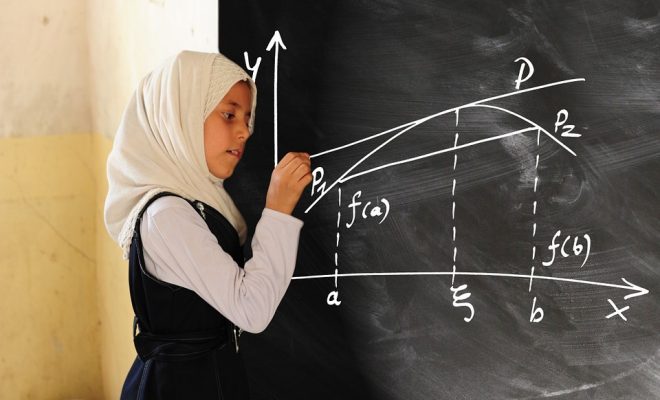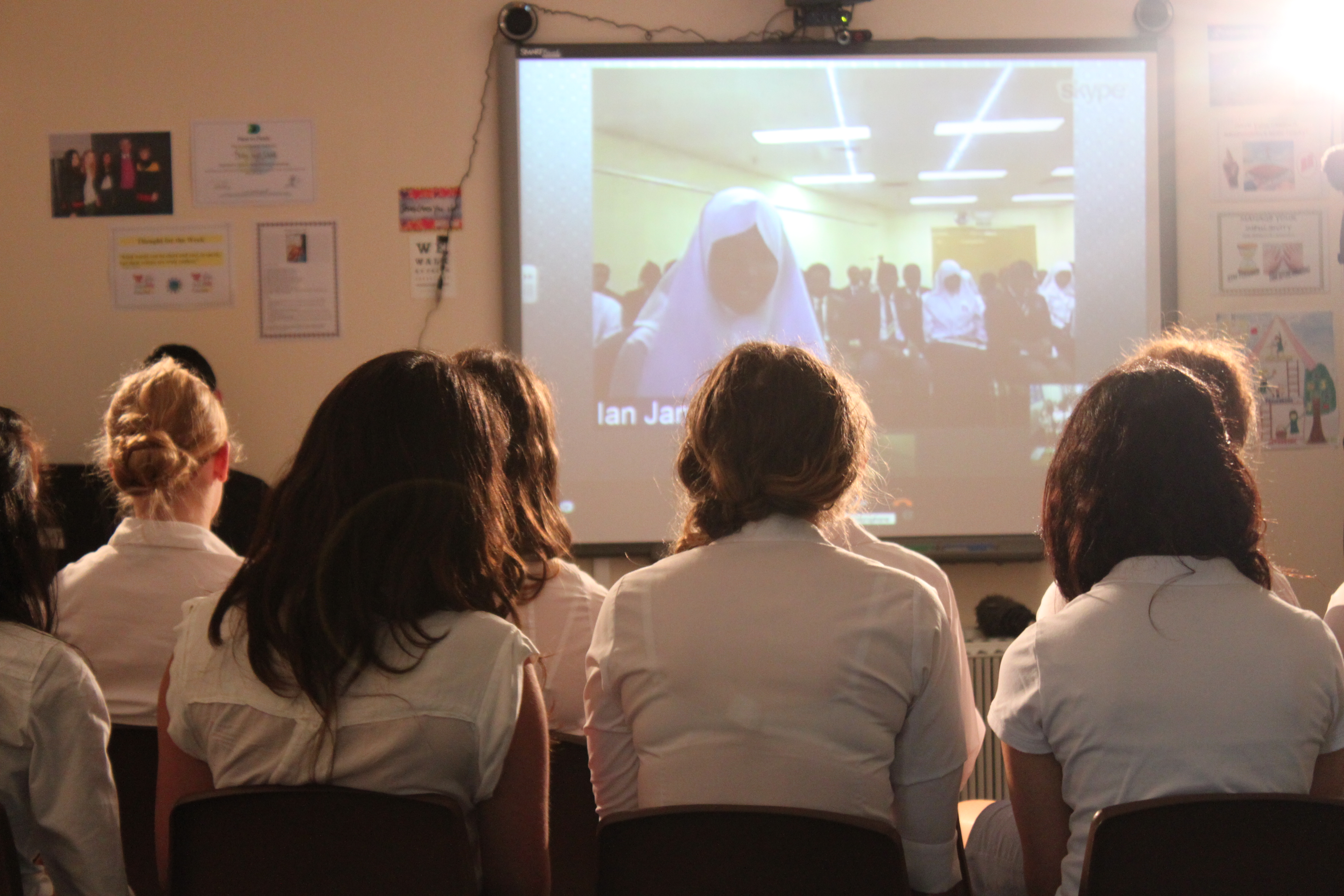Healthy body, healthy mind: The impact of school lunch on student performance

**The Edvocate is pleased to publish guest posts as way to fuel important conversations surrounding P-20 education in America. The opinions contained within guest posts are those of the authors and do not necessarily reflect the official opinion of The Edvocate or Dr. Matthew Lynch.**
A guest column by Gabe Duverge
By now, it is no mystery that what people eat has an effect on their daily physical and mental health. When people keep themselves well-nourished, they can participate more fully and effectively in a wide variety of activities. Of course, nutrition has an impact on P-12 students as well, from their academic performance to their behavior in the classroom.
During the 2012–2013 school year, more than 30 million students participated in the National School Lunch Program (NSLP), according to a U.S. Government Accountability Office report. By providing healthy lunches, schools can help their students perform better in the classroom and improve their overall health.
The State of School Lunches
The School Nutrition Association (SNA) is the largest professional organization for school lunch providers in the country, with 55,000 members. The SNA offers a fact sheet of statistics about the current state of the National School Lunch Program.
Through the program, nearly 100,000 schools and institutions serve lunches each day. Of the total 30 million students served:
- 19.2 million are receiving free lunches (children from families with incomes at or below 130 percent of the poverty level are eligible)
- 2.5 million are receiving reduced-price lunches (children from families with incomes between 130 percent and 185 percent of the poverty level are eligible)
- 8.7 million pay full price (school districts set their own prices for paid meals)
Currently, 130 percent of the poverty level is $31,005 for a family of four, and 185 percent is $44,123.
This data points toward one of the major issues with school lunches in America. If 19.2 million students are receiving free lunches due to their socioeconomic status, school lunch could be their only opportunity for a nutritious meal each day.
The National School Lunch Program costs the country $12.65 billion. Almost all of this money comes from the federal government.
School Lunch Legislation
In 1945, President Harry S. Truman signed into law the National School Lunch Act, which created the National School Lunch Program. In post-World War II America, Truman and Congress intended the bill to help absorb new farm surpluses.
When President Barack Obama was elected, first lady Michelle Obama sought to revitalize the National School Lunch Program as a part of her mission against childhood obesity. Nearly one in three American children are either overweight or obese, putting them at risk for chronic health problems related to obesity, such as heart disease, high blood pressure, cancer and asthma.
School lunches had reached a point where they were not providing the nutrients students needed to succeed and be healthy. With so many students relying on free school lunches as their primary meal for the day, reform became imperative.
In 2010, Congress passed the Healthy, Hunger-Free Kids Act. This bill made significant changes to school lunches for the first time in decades.
The most important change was the introduction of higher nutrition standards developed by the U.S. Department of Agriculture (USDA). The bill also places emphasis on the utilization of local farms and gardens to provide students with fresh produce. It requires schools to be audited every three years to see if they have met the nutrition standards.
As the USDA worked on turning the guidelines into regulations, pushback came from several groups. Some members of Congress who had supported the legislation began to criticize government intrusion into schools, and food companies that became fearful of falling profits began to lobby for delaying the changes.
Nevertheless, the USDA regulations went into effect during the 2012-2013 school year. With every meal, schools are required to offer students fruits and vegetables, low-fat or fat-free milk, whole grains and lean protein, according to the Student Nutrition Association.
Some school districts have had to overcome challenges with implementing the USDA standards due to the increasing cost of feeding students. In school cafeterias, lunches must be easy to prepare and distribute in an efficient manner.
Impact of Nutrition on Students
For years, scientists have been studying the effect of nutrition on student performance. In 2008, a Journal of School Health study discovered that fifth-graders eating fast food scored worse on standardized literary assessments. A follow-up study of fifth-graders published in The Journal of Educational Research in 2012 linked eating fast food to declining math and reading scores. How exactly do these foods affect children?
Nutrition can affect students either directly or indirectly. A 2014 report, “Nutrition and Students’ Academic Performance,” summarizes research on these issues.
Direct Effects
There are several direct effects that involve the immediate impact of nutrition on the daily performance of a student. Mental and behavioral problems can be traced back to unhealthy nutrition and poor eating habits.
Nutritional deficiencies in zinc, B vitamins, Omega-3 fatty acids and protein have been shown to affect the cognitive development of children. There is also evidence to suggest that diets with high amounts of trans and saturated fats can have a negative impact on cognition. This will harm the ability of students to learn at a pace necessary for school success.
Scientists have also established a link between student behavior and nutrition. Access to proper nutrition can help students maintain psychosocial well-being and reduce aggression. This can have a positive effect on students by avoiding discipline and school suspension.
Indirect Effects
The indirect effects of poor nutrition can be severely detrimental to the performance of students over time. Students with unhealthy lifestyles are far more likely to become sick. These illnesses then have an effect on the amount of class time missed. By not attending classes, students are much more likely to fall behind. And when they are in class, they are more likely to have little energy and to have concentration issues.
The Future of School Lunch and Student Performance
Teachers know that school lunches are a key part of the school system. They have a daily impact on the well-being of students both inside and outside of school. If you’re a teacher interested in developing your leadership skills and expanding your knowledge of how to improve student academic performance, consider the Teacher Leader Master of Arts in Education and Rank 1/Master of Arts in Student Improvement from Campbellsville University. The fully online program can help you gain the credentials you need while maintaining your responsibilities. Learn more today!
_____________
Gabe Duverge is the copywriter for the online degree programs at Campbellsville University. Gabe has a background in marketing, blogging and social media. In his spare time, Gabe enjoys creative writing, spending time with friends and sports. Follow Gabe on Twitter @GabeDuverge.




